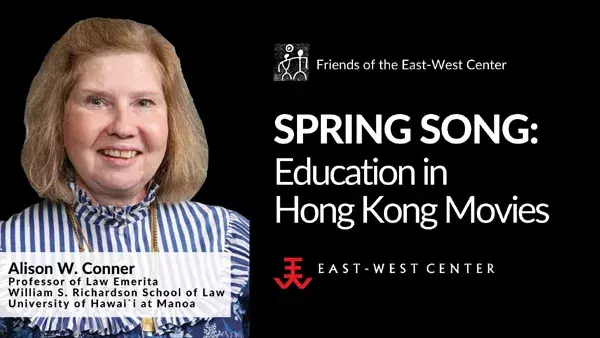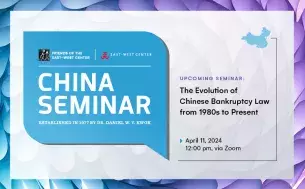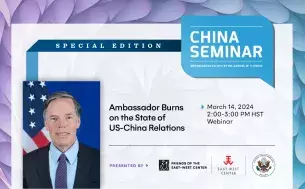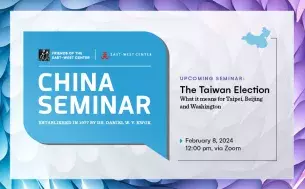Error message

Spring Song: Education in Hong Kong Movies
featuring
Alison W. Conner
Professor of Law Emerita
William S. Richardson School of Law, University of Hawaiʻi at Manoa
This talk will introduce three movies made between 1959-1961 by MP&GI (Motion Picture & General Investment) Ltd., a subsidiary of Singapore’s Cathay Organization founded in 1956 by Loke Wan Tho. A competitor of the larger and now better known Shaw Brothers, MP&GI made most of its movies in Mandarin rather than Cantonese, and its films were popular with audiences throughout Southeast Asia as well as in Hong Kong and Taiwan. During its peak years of 1957 to 1964, MP&GI offered viewers a broad range of films, predominantly urban romances, musicals, comedies and social or family dramas, often focusing on the middle class.
The movies discussed at this seminar provide us with images of education in Hong Kong during a critical time and at three different levels: Education of Love 愛的教育(1961), which is set in primary school; Beauty Parade體育皇后 (also 1961), set in middle school; and Spring Song 青春兒女(1959), which takes place at a university and is probably the first Hong Kong film to depict college life. All three were filmed during a period of educational expansion as well as at the high point of Cathay movies, and they remain of interest even now, with themes that can still resonate with Hong Kong audiences.
Alison W. Conner is Professor of Law Emerita at the William S. Richardson School of Law, University of Hawai`i at Mānoa. Before joining the Law School in 1995, she taught law and did research in China, Singapore, Hong Kong and Taiwan for twelve years; in 2004, 2014 and 2015 she returned to teach in China, and during 2016 and 2017 she was a visiting scholar in Hong Kong and Taiwan. She writes on Chinese legal history and depictions of the legal system in Chinese movies, including “Don’t Change Your Husband: Divorce in Early Chinese Movies” and “Justice and Law at the (1980) Chinese Movies.”
The China Seminar was founded by Dr. Daniel W.Y. Kwok 44 years ago. Under his guidance, it became a signature program of the Friends of the East-West Center (FEWC) in 2009. The program provides an informal venue for China experts, such as scholars, diplomats, and journalists, to present talks on aspects of China that interest the community and members of the Friends. Topics include politics, economics, social issues, history, culture, food, arts, and many other subjects. Though Dr. Kwok has recently retired from his involvement with the program, the FEWC and the East-West Center remain committed to continuing this important program.
Spring Song: Education in Hong Kong Movies
featuring
Alison W. Conner
Professor of Law Emerita
William S. Richardson School of Law, University of Hawaiʻi at Manoa
This talk will introduce three movies made between 1959-1961 by MP&GI (Motion Picture & General Investment) Ltd., a subsidiary of Singapore’s Cathay Organization founded in 1956 by Loke Wan Tho. A competitor of the larger and now better known Shaw Brothers, MP&GI made most of its movies in Mandarin rather than Cantonese, and its films were popular with audiences throughout Southeast Asia as well as in Hong Kong and Taiwan. During its peak years of 1957 to 1964, MP&GI offered viewers a broad range of films, predominantly urban romances, musicals, comedies and social or family dramas, often focusing on the middle class.
The movies discussed at this seminar provide us with images of education in Hong Kong during a critical time and at three different levels: Education of Love 愛的教育(1961), which is set in primary school; Beauty Parade體育皇后 (also 1961), set in middle school; and Spring Song 青春兒女(1959), which takes place at a university and is probably the first Hong Kong film to depict college life. All three were filmed during a period of educational expansion as well as at the high point of Cathay movies, and they remain of interest even now, with themes that can still resonate with Hong Kong audiences.
Alison W. Conner is Professor of Law Emerita at the William S. Richardson School of Law, University of Hawai`i at Mānoa. Before joining the Law School in 1995, she taught law and did research in China, Singapore, Hong Kong and Taiwan for twelve years; in 2004, 2014 and 2015 she returned to teach in China, and during 2016 and 2017 she was a visiting scholar in Hong Kong and Taiwan. She writes on Chinese legal history and depictions of the legal system in Chinese movies, including “Don’t Change Your Husband: Divorce in Early Chinese Movies” and “Justice and Law at the (1980) Chinese Movies.”
The China Seminar was founded by Dr. Daniel W.Y. Kwok 44 years ago. Under his guidance, it became a signature program of the Friends of the East-West Center (FEWC) in 2009. The program provides an informal venue for China experts, such as scholars, diplomats, and journalists, to present talks on aspects of China that interest the community and members of the Friends. Topics include politics, economics, social issues, history, culture, food, arts, and many other subjects. Though Dr. Kwok has recently retired from his involvement with the program, the FEWC and the East-West Center remain committed to continuing this important program.
China Seminars
The China Seminar was established by Dr. Daniel W.Y. Kwok in 1977. Under his guidance, it became a signature program of the Friends of the East-West Center (FEWC) in 2009. The program provides an informal venue for China experts, such as scholars, diplomats, and journalists, to present talks on aspects of China that interest the community and members of the Friends.









